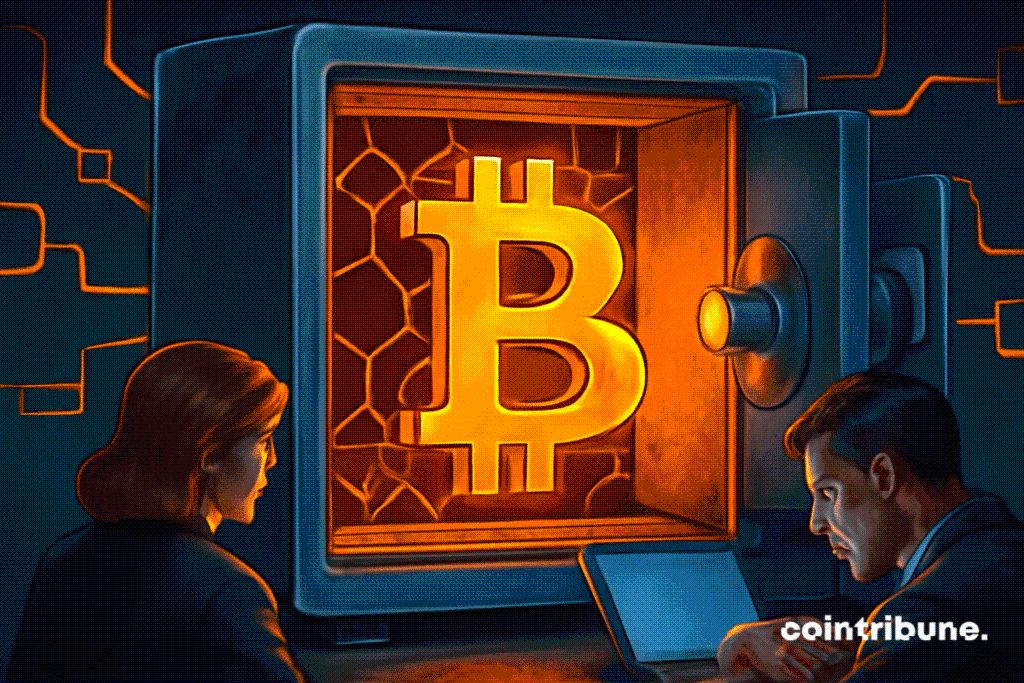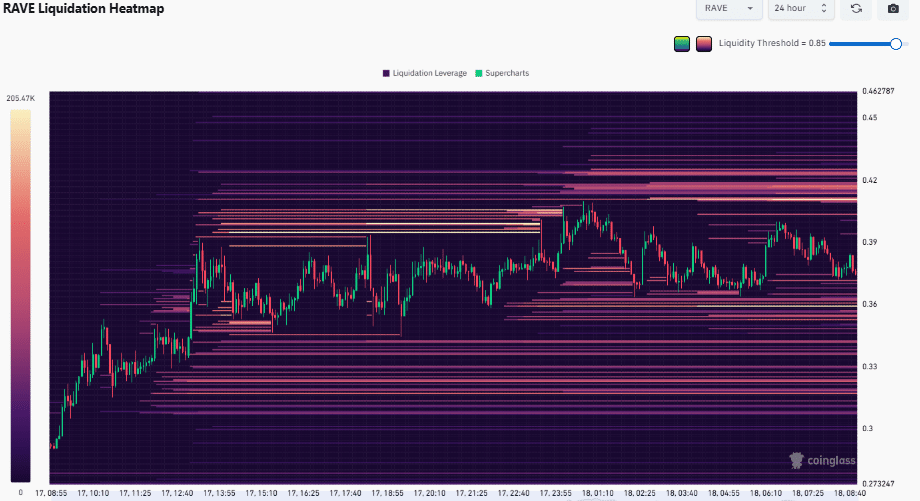Scott Bessent ends Bitcoiners' dreams: The US government will not buy Bitcoin
The United States government has dampened the hopes of many Bitcoiners. Scott Bessent, Treasury Secretary, announced that there would be no bitcoin sales under the Trump era. But what about BTC purchases? An alternative that would have satisfied many supporters of the flagship crypto, like Senator Cynthia Lummis or famous investor Michael Saylor. Will the US government stay out of one of the most prominent investments of the moment?

In brief
- Scott Bessent announces a freeze on bitcoin purchases for the United States.
- The US Bitcoin reserve will only be fed by seized assets.
- The crypto market reacted sharply, with BTC falling below 119,000 USD.
- The United States prefers a strategy of reducing their deficit through tax revenues, not bitcoin.
The freeze on Bitcoin purchases: an unexpected strategic choice
On August 14, during his appearance on Fox Business, Scott Bessent confirmed what many feared: the US government will not make new bitcoin purchases. This announcement, made after several months of speculation and public statements, came as a surprise. Bitcoiners hoped a nationalized bitcoin reserve would emerge, like a traditional central bank with gold or dollar reserves.
However, Bessent specified that the US strategic BTC reserve will only be replenished by assets seized by the courts. “We will use seized assets and continue to accumulate them,” he added, explaining that bitcoin will no longer be purchased but only stored following legal seizures.
This decision puts an end to the ambitions of those who dreamed of a major government maneuver to increase the BTC reserve.
The crypto market reacted quickly: bitcoin, which had reached a historic peak of 124,457 USD, dropped below 119,000 USD within hours . The US government’s decision not only impacted the crypto market but also the perception of bitcoin as a reserve currency.
A budget strategy: when inflation meets digital reserves
The halt in bitcoin purchases does not mean the US government is completely disengaging from cryptos. According to Bessent, the United States will continue to use seized bitcoins to enlarge the national reserve. A reserve that is currently estimated between 15 and 20 billion USD.
This model resembles a passive accumulation strategy, where the government does not seek to speculate but to store these assets for crisis management purposes.
In an economic context where the US public debt has surpassed 37 trillion USD, bitcoin reserves could play a crucial role as a safe-haven asset.
Other players, like Michael Saylor, see bitcoin as an opportunity for nations to shield themselves against inflation. But US caution shows another side of financial management. While the US bitcoin reserve remains static, the administration is exploring alternatives like increasing tax revenues, notably through tariffs, expected to reach 300 billion USD in 2024.
Although this approach alleviates deficit pressure, it does not answer rampant inflation and currency devaluation risks. Despite the US administration’s cautious stance, influential voices continue to defend bitcoin as a solution to these global economic challenges.
Bitcoin in the geopolitical framework: An asset or a mirage for America?
In a world where cryptos are rapidly developing, could bitcoin become a geopolitical tool for the United States? The crypto industry is booming, and the US, although reticent on direct bitcoin purchases, already holds significant reserves of seized digital assets. The Donald Trump administration initially considered acquiring bitcoins through budget-neutral strategies, but the halt in purchases seems to mark a desire not to enter the race for large-scale digital reserves.
In this context, cryptocurrencies, especially bitcoin, become a major issue against rivals like China. Indeed, asset decentralization strategy could allow countries like the US to position themselves more strategically against geopolitical adversaries.
However, without an active purchase plan, bitcoin still seems to be perceived as a limited asset on the world stage.
Although bitcoin can offer an alternative to more traditional assets, like gold or fiat currencies, crypto market volatility represents a potential risk for the US. By avoiding massive BTC purchases, the government protects itself from unpredictable cryptocurrency fluctuations. Bitcoin, in this view, remains an unreliable asset for a country whose economic stability relies on solid and more traditional reserves.
Some key facts:
- The US government has stopped its bitcoin purchases to focus on seized assets;
- the bitcoin price reached a historic peak of 124,457 USD before dropping to 119,000 USD following Bessent’s statements;
- The US bitcoin reserve is estimated between 15 and 20 billion USD, but will no longer be fed by direct purchases;
- Tariffs should generate 300 billion USD in 2024, an alternative to bitcoin purchases for deficit reduction.
While the US opts for caution, other countries like El Salvador, Norway , and Pakistan are not hesitating to invest in bitcoin. The queen of cryptos thus establishes itself as an alternative to traditional currencies. These countries make crypto a pillar of their economic policy, while others, like France, remain more reserved.
Disclaimer: The content of this article solely reflects the author's opinion and does not represent the platform in any capacity. This article is not intended to serve as a reference for making investment decisions.
You may also like
RAVE rallies 29%, but is the post-launch correction already over?

Stability World AI and Cache Wallet Collaborate to Redefine Asset Recovery and Digital Ownership
Solana, Aptos Move to Harden Blockchains Against Future Quantum Attacks
Revealed: Bitmain’s Massive $229.3 Million Ethereum Purchase Signals Bullish Confidence
